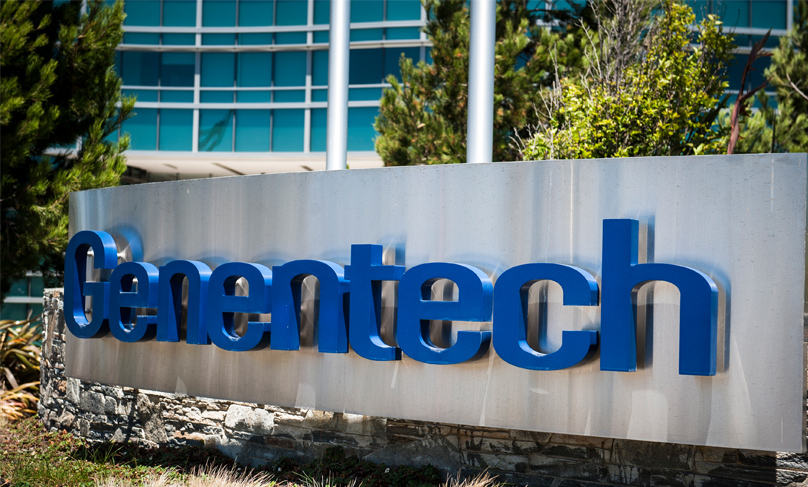Genentech extends small-molecule R&D with three platform deals

Roche’s Genentech unit signed a trio of deals this week to add new drug discovery platforms to its repertoire.
The three drug discovery deals are with Convelo Therapeutics in neurological disorders such as multiple sclerosis, Sosei Heptares for G-protein-coupled receptor-targeting compounds, and Skyhawk Therapeutics for small-molecule drugs that affect protein expression from RNA.
The flurry of deals comes as Roche is facing biosimilar competition for its ‘big three’ antibodies – Rituxan, Herceptin and Avastin – which together accounted for more than a third of its sales last year. It also comes after a pledge by the company to plough savings from a cost-reduction drive back into its pipeline.
The three platform deals are long-term bets, but broaden Genentech’s drug discovery capabilities, particularly in small-molecule R&D.
The Convelo deal focuses on the development of novel drug candidates that can stimulate a particular type of stem cell in the central nervous system – oligodendrocyte progenitor cells – to form myelin, the insulating substance around nerve cells that is progressively degraded in MS.
Convelo gets an undisclosed upfront payment as well as research funding from Roche, which has been making headway of late in the MS market with its own antibody drug Ocrevus (ocrelizumab). Convelo’s approach is to target enzymes that are involved in remyelination that can be targeted with small-molecule compounds.
The agreement with Sosei Heptares is more wide-ranging, with Roche joining a string of other big biopharma companies that have bought into the GPCR expertise of Sosei Heptares, the UK subsidiary of Japan’s Sosei group.
Genentech will pay $28 million upfront in the alliance, which could be worth up to $1 billion, to find medicines that target “new therapeutic intervention points across a range of diseases.”
GPCRs are the target for around a third of all marketed drugs, but a sizeable proportion are known as ‘orphan’ receptor, meaning they have no known function but could turn out to be useful drug targets.
Genentech will be responsible for developing and marketing any new medicines that arise for the alliance and will have exclusive global rights to these agents. It joins Pfizer, AstraZeneca, Allergan, Novartis, and Daiichi-Sankyo among Sosei Heptares’ alliance partners.
Finally, Genentech’s alliance with Skyhawk covers the development and commercialisation of small-molecule drugs that modulate RNA splicing, with a particular focus on cancer and neurodegenerative diseases. The financial terms of the deal remain undisclosed, but once again Genentech is joining a clutch of other big-name partners at Skyhawk, including Celgene, Takeda, Biogen, and Merck & Co/MSD.
Skyhawk’s discovery platform is designed to find drugs that can bind to specific pockets within the RNA molecule and “correct” RNA expression. That include RNA mis-splicing, a process that the biotech says is linked to a growing list of diseases including pancreatic cancer and medulloblastoma, as well as neurodegenerative diseases like Parkinson’s, some forms of dementia, and spinal muscular atrophy.












